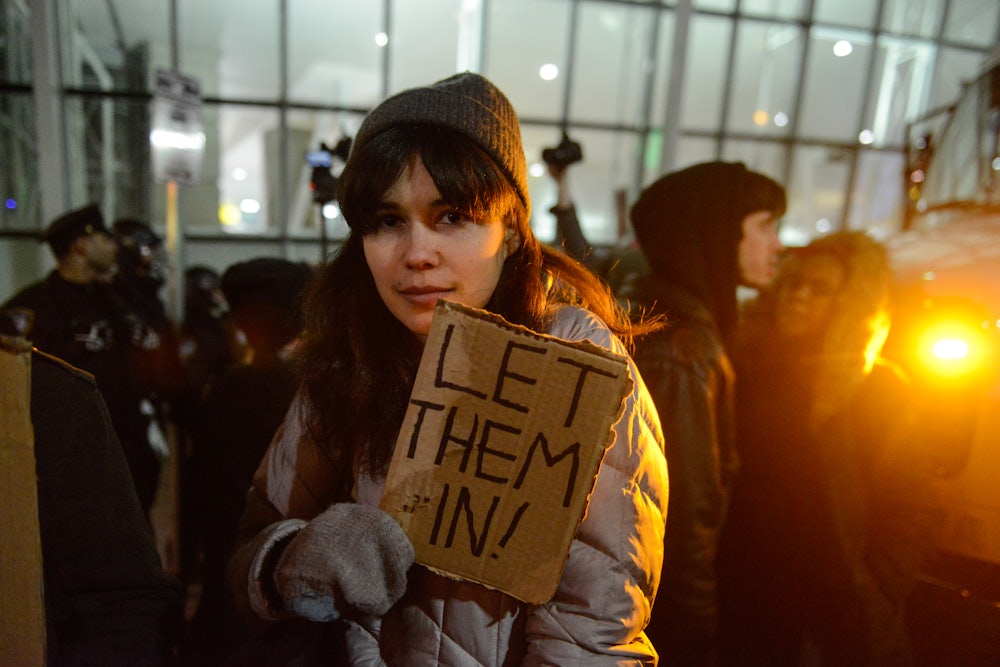Trump’s early days in office have been characterized by the same volatile mixture of incompetence, rage, and reactionism that defined his campaign. But his decision to ban travel from seven Muslim-majority countries, along with the subsequent protests and court challenges, have quickly become the defining moment of his young presidency.
The travel restrictions are a part of Trump’s larger program of turning Republican subtext—Islamophobia, Christian supremacy, and the restriction of civil liberties via counter-terrorism—into text. But this weekend was also definitional, the kind of moment that will be written into the history books as proof of the culmination of a number of trends that have been building for years. It redefines America’s relationship to the rest of the world, and to Islam in particular, and is a blow to the very concept of America as a tolerant land of immigrants. The stories America tells itself have always been somewhat gauzed in myth, but they will nevertheless be harder to tell now.
This is what Trump (and, perhaps more so, Steve Bannon and Stephen Miller) have long intended to do, indeed what Trump campaigned on doing. Trump wants to dramatically redefine America’s relationship to the Muslim world, and to dispense with the veneer of tolerance that America has employed since 9/11. The travel restrictions, as Benjamin Wittes wrote over the weekend, are also designed to punish Muslims for the sake of punishing Muslims—it is so incompetently designed that it can have no other purpose. Out-grouping and a steady erosion of civil liberties: This will be the story of Trump’s presidency.
But this past weekend also showed a way forward for those opposed to Trump’s historically unpopular presidency. Protests erupted at airports across the country and Americans of all political stripes were out in force to tell the world—and their president—that these restrictions are not winning issues, as Stephen Miller insisted they would be to lawmakers. The ACLU showed that Trump’s overreaches will be challenged in the courts, and that the courts—not Congress—may be the best way to slow, if not stop, Trump’s presidency. And, after two months of confusion, Democrats finally seem to have realized that their voters will tolerate nothing less than total resistance to Trump. The way forward won’t be easy, but after this weekend it is increasingly clear.
